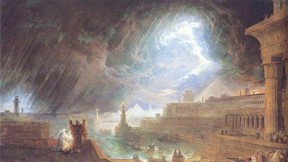 Stephen Prothero’s newest book, God Is Not One: The Eight Rival Religions That Run the World–and Why Their Differences Matter
Stephen Prothero’s newest book, God Is Not One: The Eight Rival Religions That Run the World–and Why Their Differences Matter, seeks to educate us all on the world’s great religions.
One of his more important points is method: How do we analyze another religion? The fundamental problem is that we tend to analyze it through the lens of our own religion or beliefs. So, even calling other religions “religion” at times creates a problem.
Which is the case with Confucianism. The essence of Confucianism is about a Way of Life through ren and li, or through human-heartedness/compassion/love, etc and orderliness or propriety — learning to be the sort of person you should be and observing behaviors according to where you are and what you are to do.
What have you read in Confucianism? Do you see signs of Confucianism? Where? Do you consider Confucianism a religion? What do you think are Confucianism’s distinctives?
In other words, Confucianism’s most salient connection with Judaism and Christianity, something Prothero badly misses, is the Hebrew Wisdom tradition connected to Solomon. What emerges then is respect and reverence for tradition, devoting oneself humbly to education and learning, and a life of virtues that are shaped by interaction with others. Confucianism is anti-individualism.
Confucianism’s concerns are not classically religious for Western Christians: not so much into God or the afterlife, but instead into the current life and how to live out one’s heritage. Prothero likes the idea of Confucianism being a religious humanism.
Its problem is chaos; order is the solution; one finds order through education in the ancient wisdom and its virtues of ren and li. Hierarchical orders matter deeply.
He has a nice sketch of the life of Confucius, who lived at the time of the Greek philosophers and later Jewish prophets.
His sketch of Confucianism was much more sympathetic than was his sketch of Christianity.

